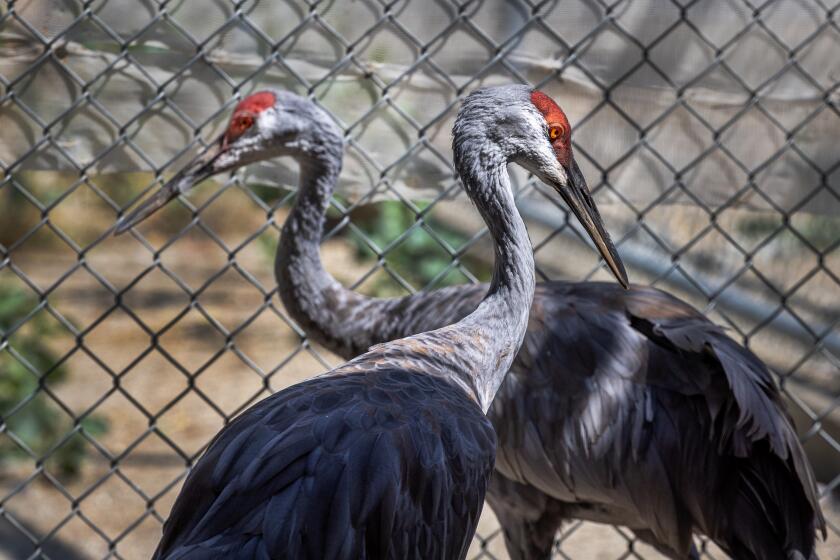Rabies Outbreak Prompts Chinese County to Kill Its Dogs
For the dog killers, it was so easy. Arrive under the cloak of darkness. Bang on pots and pans. Set off firecrackers. Their prey would bark and then meet certain death, beaten on the spot with a wooden mop handle.
That was one of the ways authorities in southwestern China managed to annihilate the entire dog population of a county within five days. More than 50,000 canines were killed in the campaign last week aimed at stemming a rabies outbreak. About 360 of the area’s 200,000 residents had been bitten by dogs this summer, and three of them died, including a 4-year-old girl.
The only dogs spared were military and police canines. For each dead animal, owners were compensated 60 cents.
“With the aim to keep this horrible disease from people, we decided to kill the dogs,” Li Haibo, a government spokesman for Mouding County in Yunnan province, was quoted as saying by the official New China News Agency.
This may be the Year of the Dog in China, an auspicious zodiac sign that has prompted countless couples to rush to the altar and have babies in hopes of providing them with a lucky start on life. But dogs are not always treated as man’s best friend here.
According to Chinese tradition, dogs have three reasons to exist: to hunt other animals, to guard homes and to be served as food.
The idea of dogs as pets is a relative novelty.
During the austere days of communist rule, cats and dogs practically disappeared from daily life, rejected as symbols of bourgeois materialism and shunned by the masses.
But since China embarked on capitalist-style reforms two decades ago, dogs have become status symbols and companions in an increasingly alienated society. Beijing has more than 400,000 registered dogs.
Even so, authorities conduct frequent raids to kill strays and confiscate dogs considered too large for city living.
Early today, state media reported that the city of Jining, in Shandong province, which has about 500,000 dogs, would start killing canines because 16 people had died of rabies in the last eight months. It did not say how many would be killed.
Activists point out that China has no laws to protect animals, except endangered species. Education about rabies prevention remains poor and rabies-related deaths are on the rise. The dog vaccination rate is about 3%, according to the Chinese Center for Disease Control and Prevention.
“Pet ownership is now a way of life in China. The government must come up with a rational and humane way of managing this phenomenon,” said Jeff He, a spokesman for the Beijing office of the International Fund for Animal Welfare, which sent a protest letter to Mouding County officials. “This kind of extreme action can only tarnish China’s international image.”
County residents interviewed by phone said the killing appeared indiscriminate. They said about 4,000 dogs already vaccinated against rabies were among those slaughtered, because of the slight chance they could spread the disease.
Before the massacre began, authorities gave dog owners a chance to do the dirty work themselves.
Xu Jiajin, a 70-year-old farmer, said his village had about 90 families and more than 100 dogs. The villagers were told the dogs had to be killed by July 27 and buried in five graves, each big enough for about 20 carcasses.
Like most villagers, his family chose to hang its dog on a tree. If not, the family was told, the dog could be buried alive.
In a nearby village, Xie Yin, 36, said her husband strapped their long-haired dog to a ladder and strangled him. She grieved over the loss but was realistic.
“We’ve had him for five years; I know he is healthy,” said Xie, admitting that the family of four later had the dog for supper.
Authorities set up checkpoints on all major roads leading into and out of the county. Any dogs found in vehicles were subject to immediate execution.
Zhang Biyin, 32, runs a small store. He doesn’t own a dog, but his parents have two at home on the farm. Both were hanged last week.
From his shop he saw teams of dogcatchers patrol the streets, knocking on doors and stopping people walking their pets, including those cuddling harmless-looking Pekingese lap dogs.
“When they see someone with a dog, they would talk them into handing over the leash,” Zhang said. “Then they would beat the dog to death in front of their owners, stuff them into a fertilizer bag and move on.”
More to Read
Sign up for Essential California
The most important California stories and recommendations in your inbox every morning.
You may occasionally receive promotional content from the Los Angeles Times.










